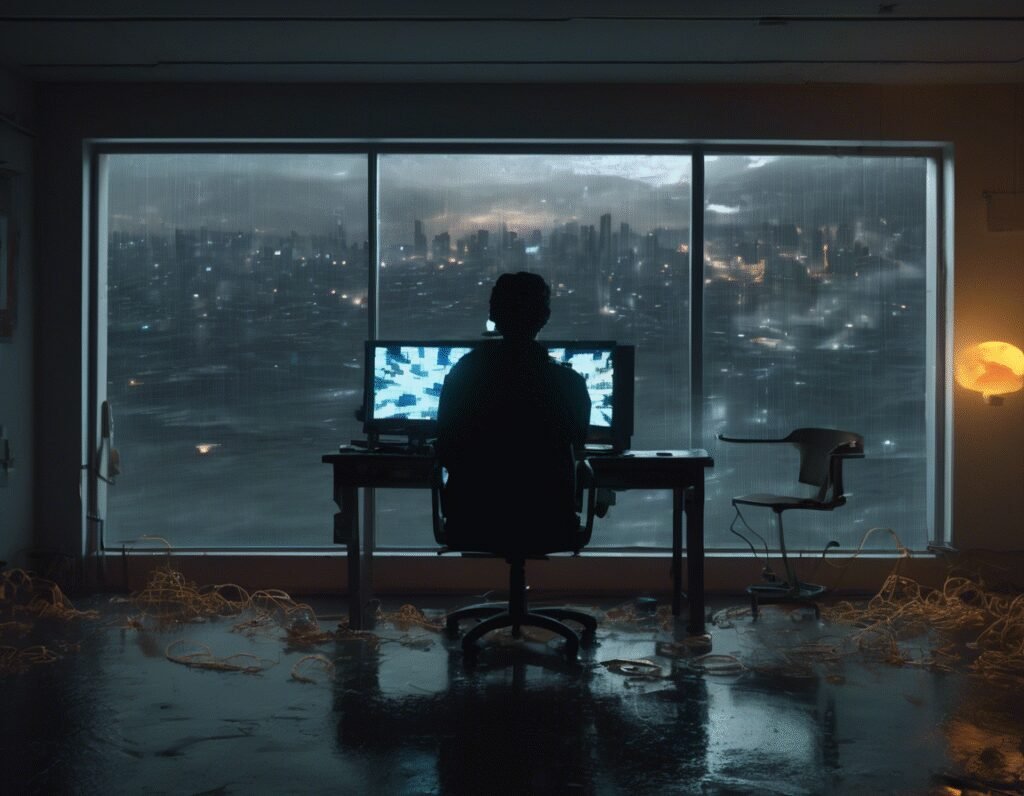The Internet in 2025: A Battlefield of Bots and the Human Cost
By 2025, the internet has entered a new era, reshaped by the relentless march of artificial intelligence. What was once a space for human connection and creativity has become a battleground where armies of hyper-optimized bots clash, fighting for dominance in a landscape designed to maximize shareholder value and corporate profits. The result? A digital ecosystem where content is ruthlessly tailored for engagement, and the winners are the executives at the top. But beneath the surface of this AI-driven revolution lies a darker reality—one where human well-being is collateral damage.
The rise of eerily personable AI chatbots has coincided with a global crisis of loneliness, economic instability, and environmental collapse. For many, these digital companions offer a fleeting escape from an increasingly bleak reality. Yet, instead of fostering genuine connection, they deepen the void, trapping users in cycles of dependency and algorithmic manipulation. The mental health toll is staggering, as people trade real-world relationships for the hollow comfort of synthetic interactions.
Meanwhile, the internet itself has become an inhospitable wasteland for human creators. Every platform is now a battleground where AI-generated content floods feeds, drowning out organic voices. The algorithms favor efficiency over authenticity, pushing hyper-optimized posts designed to exploit psychological triggers. For businesses, this means unprecedented growth—engagement metrics soar, ad revenue climbs, and executives celebrate record-breaking quarters. But for the average user, the experience is one of exhaustion and disillusionment.
The economic divide only widens in this new digital order. While corporations rake in profits from AI-driven efficiencies, workers face mass displacement as automation replaces jobs at an alarming rate. The gig economy, already precarious, becomes even more unstable as AI undercuts human labor. Those who once relied on creative or knowledge-based work find themselves competing against machines that never tire, never demand fair pay, and never question their purpose.
Perhaps the most insidious effect of this transformation is the erosion of truth. In a world where AI can generate convincing narratives at scale, distinguishing fact from fiction becomes nearly impossible. Misinformation spreads unchecked, manipulated by bots with agendas hidden behind layers of algorithmic complexity. Trust in institutions crumbles further, leaving societies fractured and vulnerable to manipulation.
The promise of AI was supposed to be progress—a brighter, more efficient future. Instead, 2025 reveals a paradox: the more advanced our technology becomes, the more human suffering it amplifies. The internet, once a tool for empowerment, now serves as a mirror reflecting our deepest vulnerabilities. The question is no longer whether AI will dominate the digital landscape, but whether humanity can reclaim its place within it.

